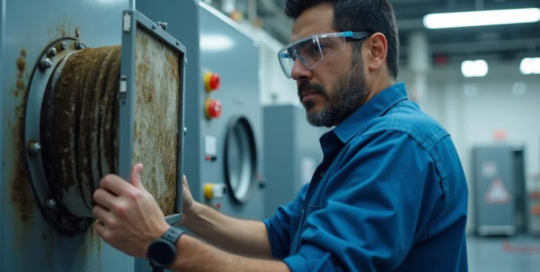Design, develop, and take responsibility for the installation of ship machinery and related equipment including propulsion machines and power supply systems.
Human factors engineers and ergonomists
2025-07-31T20:24:55-06:00Design objects, facilities, and environments to optimize human well being and overall system performance, applying theory, principles, and data regarding the relationship between humans and respective technology. They investigate and analyze characteristics of human behavior and performance as it relates to the use of technology.
Industrial engineers
2025-07-31T20:24:45-06:00Design, develop, test, and evaluate integrated systems for managing industrial production processes, including human work factors, quality control, inventory control, logistics and material flow, cost analysis, and production coordination.
Product safety engineers
2025-07-31T20:24:38-06:00Develop and conduct tests to evaluate product safety levels and recommend measures to reduce or eliminate hazards.
Fire prevention and protection engineers
2025-07-31T20:24:40-06:00Research causes of fires, determine fire protection methods, and design or recommend materials or equipment such as structural components or fire detection equipment to assist organizations in safeguarding life and property against fire, explosion, and related hazards.
Industrial safety and health engineers
2025-07-31T20:24:27-06:00Plan, implement, and coordinate safety programs, requiring application of engineering principles and technology, to prevent or correct unsafe environmental working conditions.
Environmental engineers
2025-07-31T20:22:20-06:00Research, design, plan, or perform engineering duties in the prevention, control, and remediation of environmental hazards using various engineering disciplines. Their work may include waste treatment, site remediation, or pollution control technology.
Radio frequency identification device specialists
2025-07-31T20:22:13-06:00Design and implement radio frequency identification device (rfid) systems used to track shipments or goods.
Electronics engineers, except computer
2025-07-31T20:22:04-06:00Research, design, develop, or test electronic components and systems for commercial, industrial, military, or scientific use employing knowledge of electronic theory and materials properties. They design electronic circuits and components for use in fields such as telecommunications, aerospace guidance and propulsion control, acoustics, or instruments and controls.
Electrical engineers
2025-07-31T20:21:59-06:00Research, design, develop, test, or supervise the manufacturing and installation of electrical equipment, components, or systems for commercial, industrial, military, or scientific use.









